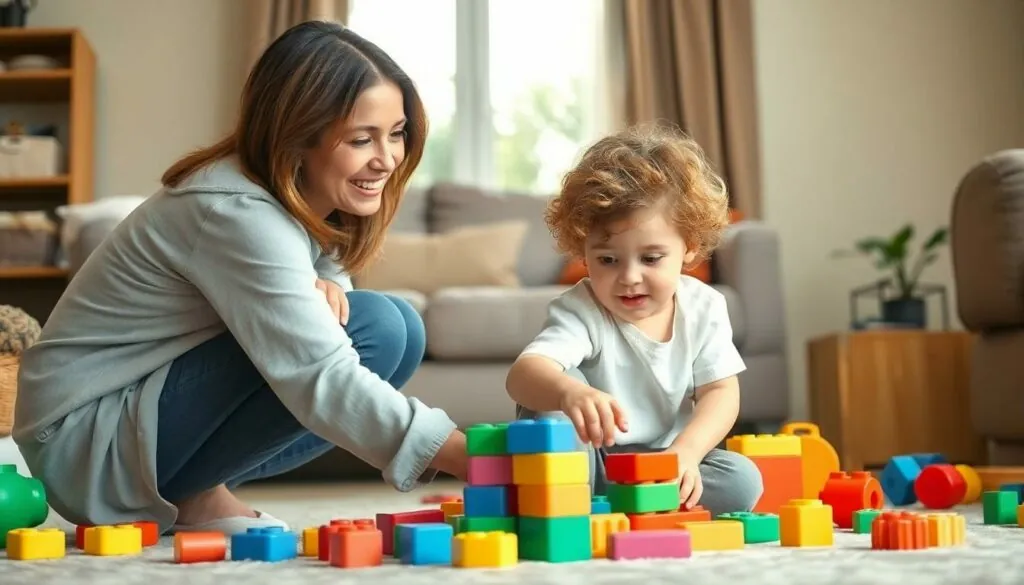Table of Contents
ToggleParenting can feel like a circus act, but when it comes to solo and single parenting, the tightrope walk gets even trickier. While both paths involve raising kids without a partner, they come with distinct challenges and rewards. Solo parents often tackle the job alone by choice, while single parents may find themselves navigating the wild world of co-parenting.
Overview of Parenting Types
Parenting types encompass different structures, emphasizing various dynamics in child-rearing. Solo parenting involves raising children without a partner, often by choice. In contrast, single parenting frequently arises from separation or divorce, necessitating interaction with a co-parent.
Responsibility rests solely on solo parents, giving them complete autonomy in decision-making. Time management becomes crucial, as they balance work, personal life, and parenting duties. Various supports, such as family or friends, might assist in navigating challenges.
Single parents often share responsibilities with a co-parent, which can introduce complexities. Communication plays a vital role, ensuring both parents remain involved in their child’s life. Scheduling conflicts may arise, affecting time spent with children and their overall stability.
Different financial considerations exist between the two types. Solo parents typically bear all financial obligations alone, which can lead to a more constrained budget. Conversely, single parents may share costs and resources, helping to alleviate some financial pressure.
Emotional support varies between solo and single parenting. Solo parents often develop strong resilience due to their independence. Single parents may rely on co-parents or extended family, creating a network of support to lean on during challenging times.
Understanding the differences between solo and single parenting provides insight into unique experiences. Each type possesses its own set of advantages and disadvantages, impacting the overall parenting journey. Recognizing these distinctions fosters a better comprehension of the parenting landscape.
Understanding Solo Parenting

Solo parenting involves a parent raising a child without a partner. This approach can stem from various reasons, such as personal choice or circumstances beyond a parent’s control.
Definition of Solo Parenting
Solo parenting refers to the scenario where one parent independently handles all aspects of raising their child. This parent assumes complete responsibility for decision-making, caregiving, and financial support. Unlike single parenting, solo parenting assumes no involvement from a co-parent. Individuals often embrace this lifestyle for various reasons, including personal autonomy or the desire for a stable environment for their children.
Key Characteristics of Solo Parenting
Solo parenting encompasses distinct traits that set it apart from other parenting styles. Full autonomy defines solo parenting, as parents enjoy total freedom in decisions like education and upbringing. Financial obligations fall solely on solo parents, demanding careful budgeting and resource management. Time management becomes crucial, as they balance work and personal life while ensuring that their children’s needs are met. Emotional resilience often grows from this independence, prompting solo parents to seek support from friends or family when needed.
Understanding Single Parenting
Single parenting involves raising children without a partner. Often, it requires managing the dynamics of co-parenting while balancing personal responsibilities.
Definition of Single Parenting
Single parenting describes a family structure in which one parent raises a child or children, usually due to circumstances like divorce, separation, or unplanned pregnancies. This parent typically assumes primary responsibility for the child’s welfare, which includes emotional, financial, and educational aspects. Co-parenting arrangements may exist, where the other parent contributes to responsibilities without residing in the same household. Hence, single parents navigate parenting duties while often collaborating with their child’s other parent.
Key Characteristics of Single Parenting
Single parenting includes several defining features. Time management emerges as a critical skill, given the need to balance work and family life. Communicating effectively with the co-parent often leads to smoother interactions regarding children’s needs. Financial responsibility primarily lies with the single parent, although some expenses may be shared. Support networks frequently play a vital role, as single parents engage friends and family for assistance. Emotional resilience proves essential, as handling challenges independently fosters strong coping skills in single parents and their children.
Difference Between Solo and Single Parenting
Solo parenting and single parenting present distinct emotional and financial landscapes. Solo parents assume full responsibility for their child’s needs, managing every aspect independently. This autonomy leads to a unique emotional resilience but also magnifies financial pressures. In contrast, single parents share financial obligations with a co-parent, which alleviates some stress. However, navigating co-parenting dynamics can add emotional complexity as they balance their children’s needs alongside collaborative responsibilities.
Emotional and Financial Aspects
Emotions fluctuate significantly between solo and single parenting. Solo parents often cultivate strong independence, relying on personal coping strategies for emotional support. This independence can foster resilience, essential for overcoming challenges alone. Financially, solo parenting places the entire fiscal burden on one parent, creating potential stressors. In single parenting, shared financial responsibilities can provide a safety net, but emotional dynamics with the co-parent can pose challenges. Ultimately, the financial arrangements and emotional landscapes differ sharply between these parenting styles.
Support Systems and Social Perception
Support systems vary widely for solo and single parents. Solo parents frequently turn to friends or family for assistance, creating a personal network. Establishing this network enhances resilience and often promotes well-being. Social perception also diverges; solo parenting may attract admiration for independence, while single parenting can invite sympathy due to perceived struggles with co-parenting. Each group faces unique obstacles, and societal attitudes can shape their experiences, impacting how they navigate parenting challenges.
Challenges Faced by Each Parenting Type
Solo parents encounter unique difficulties that stem from their complete independence in decision-making. Time management poses a significant obstacle, as they juggle work obligations while ensuring their child’s needs are met. Financial strain often amplifies these challenges, with solo parents assuming full responsibility for expenses related to childcare, education, and health. Emotional resilience develops as they navigate these pressures alone, but support from friends or family remains crucial.
In contrast, single parents deal with co-parenting dynamics that introduce complexities into their parenting journey. Effective communication with a co-parent becomes essential, especially when coordinating schedules and addressing differing parenting styles. These interactions can lead to misunderstandings or conflicts, affecting overall stability for the children involved. Financial responsibilities can be shared, which provides some relief; however, emotional challenges may arise due to unresolved issues from the past.
Navigating social perceptions presents another layer of complexity for both solo and single parenting. Solo parents may receive admiration for their independence, while single parents often feel judged or pitied due to their situations. This stigma can influence their self-esteem and affect their parenting approaches. Solo parenting fosters a spirit of independence, yet it can lead to feelings of isolation. Single parents, though, generally find solace in a support network that may include the other parent, extended family, and friends, assisting in overcoming shared challenges.
Each parenting type carries distinct challenges and requires unique coping strategies, thereby shaping their overall parenting experiences.
Understanding the differences between solo and single parenting is crucial for recognizing the unique challenges each type faces. Solo parents navigate the complexities of raising children independently while shouldering all responsibilities. This often fosters resilience but can lead to significant financial and emotional pressures.
On the other hand, single parents engage in co-parenting dynamics that require effective communication and collaboration. While they share financial burdens, the emotional complexities of co-parenting can introduce additional challenges.
By appreciating these distinctions, individuals can better support both solo and single parents in their parenting journeys, acknowledging the strength and adaptability required in each situation.




